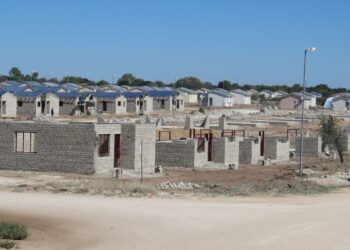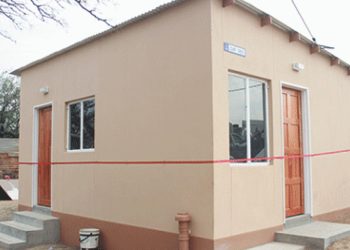
The Construction Industries Federation of Namibia (CIF) and the Metal and Allied Namibian Workers Union (MANWU) are seeking an audience with President Hage Geingob to intervene and cancel multi-billion tenders that were allegedly awarded to foreign companies at the expense of locals.
This comes as many local companies fell off the bidding process due to alleged stringent pre-qualification requirements relating to technical expertise and proven financial capacity, which the representative bodies feel was unjust.
If this issue is left unresolved, CIF and MANWU believe that excluding local contractors is not in the interest of maintaining and further developing the Namibian construction sector.
The representatives further argue that this exclusion is not aligned with Namibia’s efforts to address poverty and reduce unemployment.
They also contend that the engagement of foreign contractors undermines Namibia’s efforts at optimal revenue collection and the circulation of money in the Namibian economy.
“These are projects that are not in the interest of the Namibian construction sector, as they undermine its optimal performance. Following cancellations, the financial and technical criteria for each of the respective projects would need to be reviewed, and then they should subsequently be re-advertised in smaller lots, with more realistic technical criteria.”
Bärbel Kirchner, Chief Executive Officer of the CIF, described the developments as extremely disappointing and undermining Namibia’s own contractors.
“Namibian contractors and professionals in the construction sector are in desperate need of work,” she said.
“There seems to be no understanding and no deliberate attempt to optimally support our local industry. This includes not only the majority of Namibian-owned SMEs but also the majority of Namibian-owned mid-size contractors and the majority of Namibian-owned large-size contractors. On the contrary, it appears that our own contractors, especially the large-size ones, are deliberately undermined. This could lead to the insolvency and eventual bankruptcy of our established and well-capacitated contractors,” Kirchner added.
She said that the effect would negatively impact many of Namibia’s large-size contractors who have invested in plants and machinery.
“If indeed these businesses were to close down, Namibia would lose the backbone of its building and construction sector, and Namibia would become increasingly dependent on foreign contractors. Once the latter have succeeded in fully capturing the Namibian market, it is very likely that there will be an eventual change in their business models and their costing and pricing strategy,” she said.
Among the projects being contested and sought to exclude Namibians are the construction of the 33-kilometer Karibib road, Namibia Financial Institutions Supervisory Authority (NAMFISA) head office, as well as several water treatment plants at Oshakati and Rundu by NamWater, requiring N$512 million and N$246 million financial capacity.
NamPower’s 70-megawatt plant was also highlighted, noting that lead bidders are required to show audited reports for an annual turnover of N$420 million for the past 3 years.
In addition, the lead bidder would need to have a cash or line of credit in place that is available and proved unutilized, amounting to N$168 million.
For NAMFISA, the representative bodies stated that a bidder needs to provide proof of construction work completed over the last 10 years, totalling N$180 million, and at least one of the projects needed to have a value of N$75 million.
Post-qualification bid requirements include proof of working capital of a minimum of N$30 million, as well as a performance security equivalent to 10% of the total contract value.
The parties also took issue with a company owned by the Defence Ministry that was awarded a N$255 million tender to construct classrooms on August 26.
Meanwhile, MANWU Secretary General Justina Jonas said it must be the state’s priority to ensure that local contractors, especially those with equal capacity as foreign contractors, are exempted from tender requirements and are awarded the mega projects.
“At the moment, the private sector is leading by example to ensure that big local contractors are awarded jobs. However, it is critical that the government creates a safe environment for its citizens. Foreign contractors should be sourced as subcontractors by our local contractors, and it should not be the other way around,” she stressed.
“We also want to caution the public not to be misled about the issue of middle agents or ‘entrepreneurs.’ We all know that ‘entrepreneurs’ are very likely a project of corrupt officials who are in bed with foreign contractors. ‘Entrepreneurs’ are the ones who are causing problems, and it seems there is no one ready to hold them accountable. We have been calling for the establishment of the National Construction Council so that the sector is properly regulated,” the Unionist said.
CIF and MANWU also stated that they were aware that authorities are cognizant of the many uncompleted projects procured by the government.
Both entities have repeatedly called for the establishment of a construction council, as poor workmanship and non-completion are essentially the result of limited knowledge and poor selection of contractors.
“It is frustrating that these developments are then used by many as justification for the involvement of foreign contractors. This undermines our own industry and creates a perception that all Namibian contractors are unable to meet requirements. We believe that this perception is sadly a result of what can be regarded as inaction by our government to effectively address the matter,” Kirchner said.











